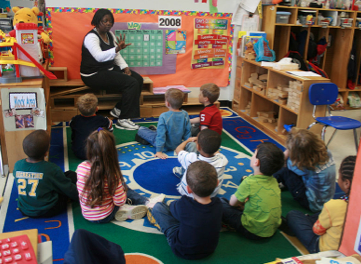
Within the climate communication community, blaming the messenger—climate scientists—for the lack of progress on climate action has been almost as popular as blaming deniers for interfering with the message. “If only climate scientists were better communicators,” the lament goes, “then we’d see more progress on addressing climate change.”
What's the alleged problem with climate scientists? Critics claim they are often lousy communicators, often overwhelming the public with jargon, flooding them with too much data, emphasizing uncertainties, and, at times, evincing an aloof attitude that conveys their frustration at how dumb mere mortals are who just don't get their important insights and wisdom.
Having worked with high-level, world-class climate scientists for over a decade and having been an associate scientist myself at the Cooperative Institute for Research in Environmental Sciences at the University of Colorado, Boulder, I can attest that there is a smidgen of truth to such critique. On occasion, even I have been guilty as charged, out to enlighten the great unwashed without calibrating my words of wisdom to the needs of the audience, flooding them with charts and graphs and too much information, as if the sheer volume of facts will convince them of the truth.
Yes, indeed, scientists can be their own worst enemies when it comes to communicating their message. To groom them to be better at adjusting their communications for their audience, a cottage industry has sprung up within the climate community to encourage scientists to speak more from the heart, less from the head, stripping away technical terms and keeping their communications short, sweet, and to the point. But part of the problem is with how scientists are perceived.
A recent study in the Proceedings of the National Academy of Sciences (PNAS) examining public attitudes toward different professions found that while scientists are generally respected as being competent, they are not fully trusted. While they are admired, people in high-status professions, which include not only scientists and researchers but also lawyers and accountants, often trigger emotions of envy, resentment, and jealousy among the public.
The researchers looked specifically at climate scientists and found that there is slight distrust of climate scientists that seems to hinge on questions about how they gain research money. Other studies have found that trust in scientists has been diminishing among US conservatives in recent years, as media echo chambers reinforce strong ideological views.
But overall, climate scientists look good according to the PNAS survey:
On a three-item, five-point scale of trust, climate scientists averaged 4.35 on their motives to educate the public, save humanity, and save the environment. Clearly, these reasons for trust suggest a constructive approach to the public, balancing expertise (competence) with trustworthiness (warmth), together facilitating communicator credibility.
The authors of the study state that “the public does have some knowledge” about climate change. But as we have seen previously, that knowledge is sketchy and thin at best, in large part because climate change hasn't been taught or taught well in school.
The most trusted professions? Teachers, nurses, and doctors, the “pride” professions that combine warmth (trustworthiness) and competence. Though not regarded by the public as ultra-competent, as scientists or engineers are, the trustworthiness of teachers confirms that they are the ones who could and should be conveying the basic causes, effects, and risks of, and possible responses to, climate change.
Admittedly, teachers have their issues, as Dana Goldstein points out in her recent book The Teacher Wars (2014), which chronicles how teachers have become idealized and sometimes resented. However maligned or disrespected (not to mention overworked and underappreciated), there are no professionals better suited than well-prepared, inspiring teachers to prepare young people with the knowledge for responding to climate and energy challenges.
Instead of putting all the burden on scientists to do all the heavy lifting on climate change, let’s get climate scientists and teachers—and perhaps doctors and nurses, who can bring their public health perspectives to the mix—together, collaborating toward a common goal: a prepared, resilient, science-savvy society.
What will it take? Most teachers need to get up to speed on the science. There are different ways to do this, although giving teachers face time with scientists is a great way. In my experience, teachers usually relish the chance to hang out with real scientists, even if they are sometimes intimidated by them. But it is imperative that teachers be respected as professionals and as colleagues. Scientists can learn a great deal from K–12 educators about the daunting challenges as well as exciting opportunities to infuse climate, energy, and related global change science and solutions into and throughout the curriculum.
There has been and will continue to be push-back against teachers who want to do the right thing by teaching these and other “controversial” topics. But when teachers know that they have the support of scientists and citizens for teaching science properly, the countermovement insurgents, like the Cool Dudes, won’t be able to get as much traction as they have in the past.
Scientists and teachers, competence and trustworthiness. Sounds like a winning combination to me.
